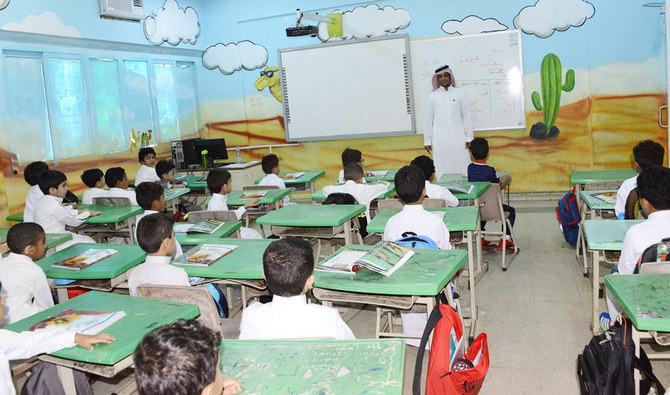RIYADH: Dr. Majid Al-Eissa, executive director of the National Family Safety Program (NFSP) in Saudi Arabia, said that according to different studies conducted by the NFSP in the past 5 years, one in three children is exposed to peer violence or bullying.
“We noticed that physical violence is more common among males compared to verbal or psychological or emotional violence which is more common among females,” he added.
During a workshop session titled “Anti-Bullying and Children’s Rights” organized by the Saudi Human Rights Commission (HRC) on the occasion of Universal Children’s Day on Wednesday, Al-Eissa said that bullying is common in early childhood and increases through adolescence. However, it transforms from physical more to psychological in older age groups.
Nadiah Al-Saif, specialist in bullying and emotional intelligence at Princess Nourah bint Abdulrahman University, disputed the prominance of bullying, said that it happened less frequently after early childhood. “It actually starts in elementary school, increases in intermediate schools and significantly decreases in high schools. It’s almost nonexistent in universities but returns in a working environment in a more verbal and psychological way.”
Al-Eissa said: “It has severe consequences not only in the short term but in the long term on individuals. This includes in education, truancy, poor performance in schooling, decreased rates in job acquirement, and loss of human capital function, which is a severe loss in the economy of the country.”
Speaking to Arab News, Al-Eissa pointed out that since 2016, a program had been launched in schools to educate officials on how to deal with bullying and create an anti-bullying environment.
Al-Eissa said that in order to see the effectiveness of prevention programs, “We need years of implementation to see a real decline in the trends.
“The few cases of fatalities (in schools) witnessed this semester is concerning. And I think participation in this event reflects the importance of this issue … it urges into taking action,” he added.
During the launch of today’s workshop Dr. Awwad Al-Awwad, chairman of the HRC, expressed the authority’s concern about the growing phenomenon of bullying, which clearly threatens the stability of children's lives and the integrity of their behavior, stressing that the authority would work with others to find solutions.
With the presence of 50 governmental and civil authorities, experts, legal professionals and students, Al-Awwad stressed that Universal Children’s Day provides an inspirational entry point for defending, promoting and celebrating children’s rights, and translating them into dialogues and procedures to build a better world for children.
Eman Al-Aifan, general supervisor of early childhood at the General Department of Early Childhood in the Ministry of Education, said the department had implemented a “Personal Safety Program for Children” in cooperation with the UN Children’s Fund (UNICEF) and Arab Gulf Development Programme (AGFUND) in two phases.
The first stage will establish a safe environment for children. The second stage will protect children from violence and abuse.
“The program aims to enhance the values and skills of personal safety in children in kindergarten (3-6 years) and those who educate them like teachers and parents,” Al-Aifan said.
“The implementation of the program was successful, it is effective in developing educators (teachers/parents) and in enhancing children’s self-confidence and ability to express themselves,” Al-Aifan said
She pointed out that the second stage (protecting the child from violence and abuse) was “still in the process” of training educators from all regions of Saudi Arabia.
Malak Al-Harbi, founder of Jalees club, was a victim of bullying when she was a child for being overweight, she told Arab News.
“This is one of the topics that I will talk about in my program because it is spread in schools and in society in general because children can be bullied at home. Sometimes one parent can be a bully, and their child can become one too,” Al-Harbi said.
“Bullying won’t end completely, but there should be awareness, and then a system that controls it in schools,” she added.
She proposed a solution to focus on kindness. “When I was young, I was always subjected to sarcastic comments of my weight,” she said, pointing out that sometimes bullying was part of children’s personalities, but other times happened because a child might imitate its peers. “They are influenced by collective thinking and just need to be aware of the damage.
“Of course, now I thank God I knew how to erase negative effects of bullying. But surely it was the reason for my delay in moving on in my life, because I was psychologically defeated,” she said.
















